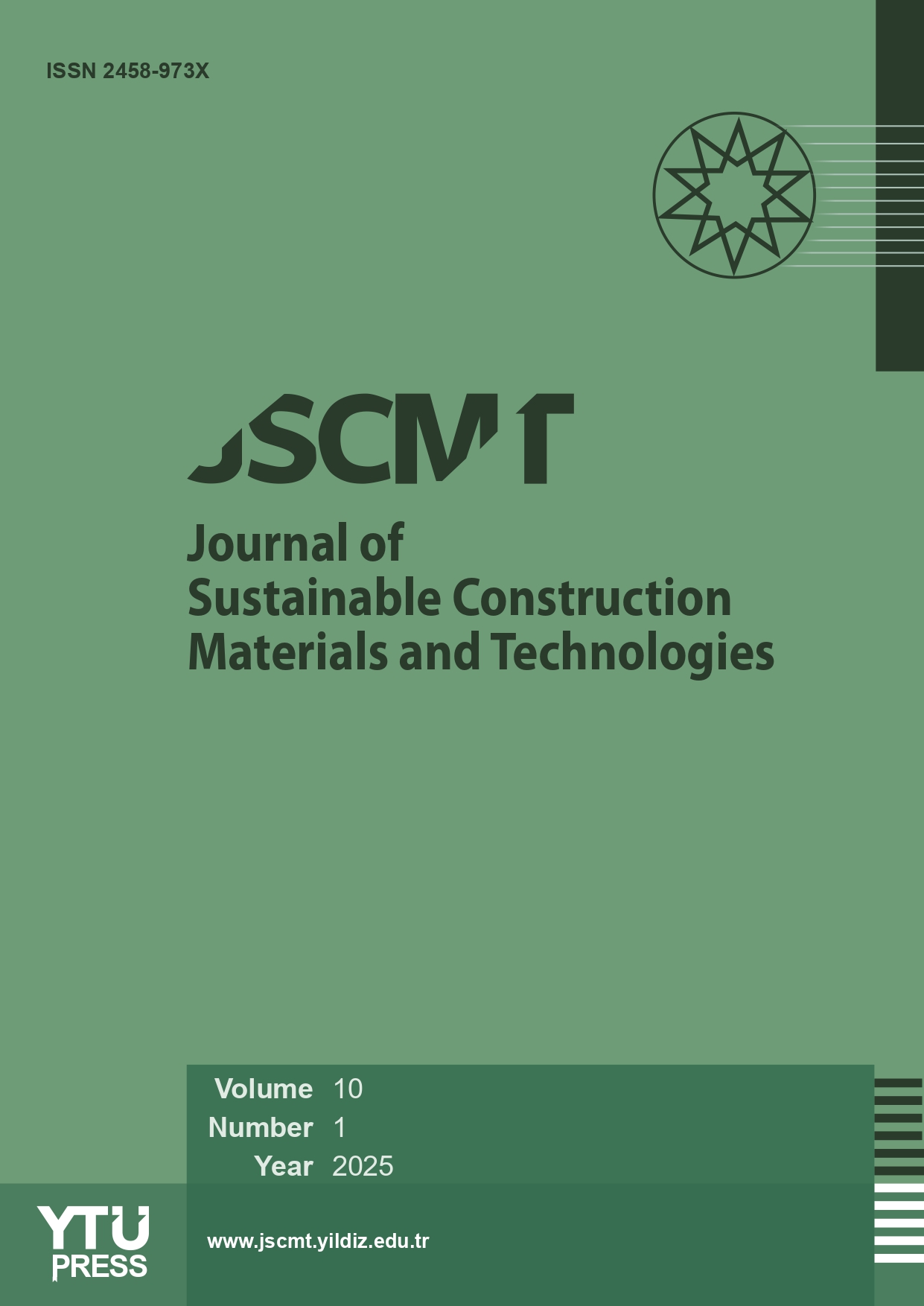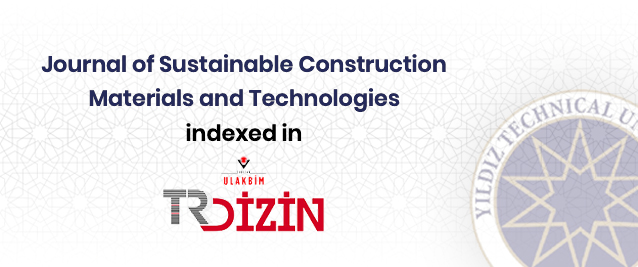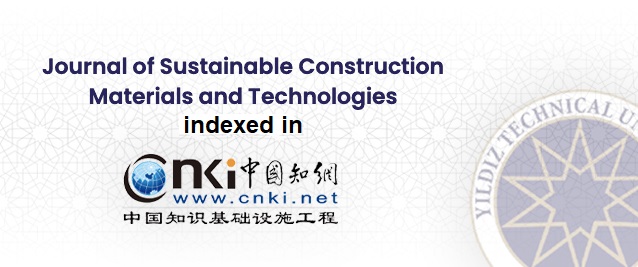2Department of Civil Engineering, Yıldız Technical University, İstanbul, Türkiye
Abstract
In this study, it was investigated the influence of rice husk ash, which is a waste by-product of industrial production, on ultrasonic pulse velocity, compressive strength, flexural strength and high temperature endurance of the metakaolin-based geopolymer mortar. For this, the sand was substituted by rice husk ash (RHA) at the rate of 25%, 50% and 75% by wt. in the production of geopolymer mortar. A total of 4 series of metakaolin-based geopolymer mortars (reference series and three series with RHA substitution) were produced. In this study, the geopolymer, in other words, the binder of the mortar was produced by metakaolin and ground granulated blast furnace slag reacting with the mixture of sodium hydroxide (12M NaOH) and sodium silicate (Na2SiO3) solutions. The ratio of metakaolin and reactant mixture (12M NaOH + Na2SiO3) was determined for each series following the preliminary experiments. On the specimens produced as 50 mm cube and 40 x 40 x 160 mm prism, the intended
experiments were carried out after specimens underwent curing in a dry oven at 60oC during 72 h and gained strength. The results have shown that RHA could be used as a filling material in metakaolin-based geopolymer mortars, and metakaolin-based geopolymer mortars with 50% RHA substitution can be an alternative to the pure metakaolin-based mortar.
















